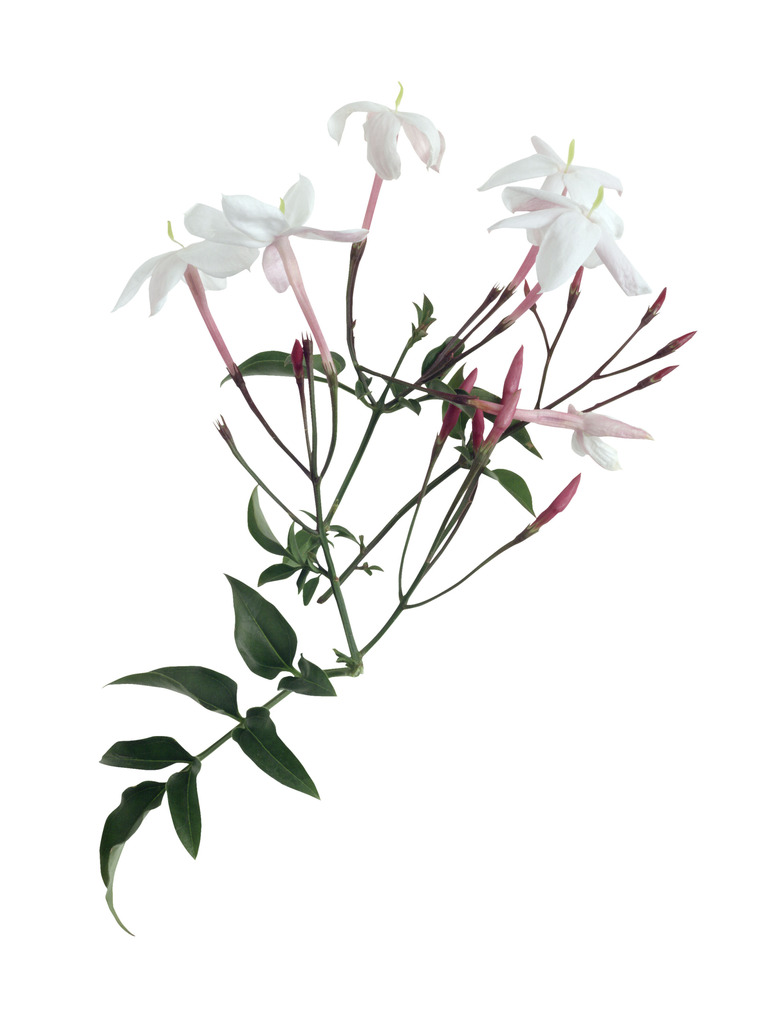Is Jasminum Polyanthum Toxic To Animals?
Jasminum polyanthum, commonly called pink jasmine or winter jasmine, is a fast-growing vine known for its fragrant white flowers.
Jasminum polyanthum, commonly called pink jasmine or winter jasmine, is a fast-growing vine known for its fragrant white flowers. The American Society for the Prevention of Cruelty to Animals identifies it as nontoxic to cats, dogs and horses so you can plant this beautiful vine anywhere on your property with confidence. Pink jasmine is hardy in U.S. Department of Agriculture plant hardiness zones 8 through 11.
Features
A climbing vine, pink jasmine features delicate white flowers with a distinctive scent. The buds and backsides of the flowers are pink, giving the plant its common name. The foliage is comprised of glossy compound leaves, which are dark green on the topside and lighter green on the underside.
Culture
Pink jasmine prefers partial to full sun and average moisture. Keep the soil consistently moist but don't overwater it until the soil is soggy. Jasmine can be propagated through seeds or suckers and is evergreen in frost-free climates. It can reach 20 feet in height and may bloom all summer in a warm climate. Feed pink jasmine a low-nitrogen liquid fertilizer once a month when the plant is active and bimonthly when it is resting.
- Jasminum polyanthum, commonly called pink jasmine or winter jasmine, is a fast-growing vine known for its fragrant white flowers.
- Feed pink jasmine a low-nitrogen liquid fertilizer once a month when the plant is active and bimonthly when it is resting.
Use
This twining vine grows quickly with thick foliage, making it a suitable choice to climb on walls, surfaces , gates and fences and can be used safely in areas with outdoor pets. It can also be trained to grow on forms, arbors or trellises. Try planting it around windows to create a beautiful, fragrant frame, or grow it indoors with no need to worry about indoor pets getting to it.
Poisonous Plants
While pink jasmine is considered nontoxic to cats, dogs and horses, many common landscape and household plants are toxic to some animals. The ASPCA website offers a helpful database to help you check the safety of plants for your pets (see Resources). If you think your pet may have eaten a toxic plant, contact a veterinarian right away.
